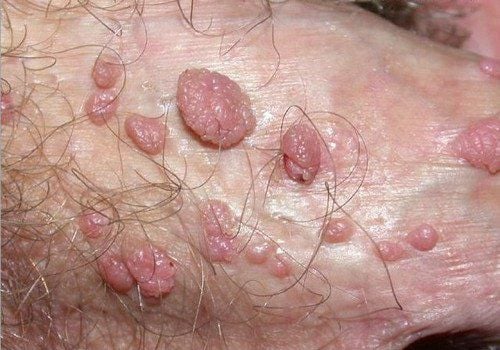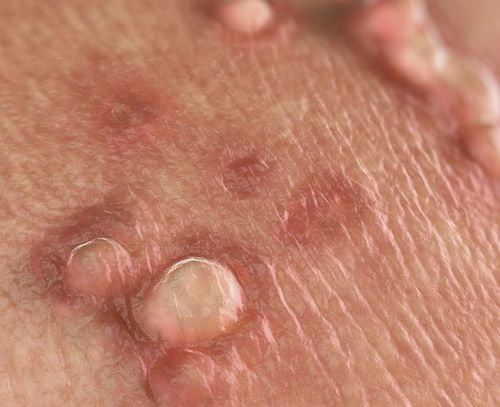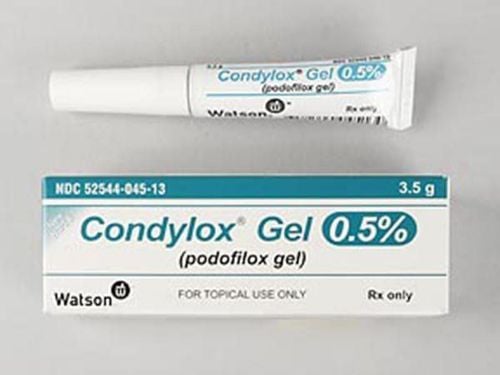Currently, many people wonder if they can have sex once infected with HPV? This is because this is a very common sexually transmitted disease and many dangerous consequences can be experienced from infection with strains of this virus.
1. Overview of HPV
1.1. What is the HPV?
HPV is one of the sexually transmitted viruses. This is a common virus that anyone, whether male or female, can get at one point in their life. There are many different types of HPV, some of which can cause serious health problems such as genital warts and even genital cancer.
1.2. How is the HPV transmitted?
HPV is transmitted through skin-to-skin contact, you can get infected HPV when having sex directly through the vaginal or oral or anal route of someone who has been infected with HPV before.
This virus can be transmitted even when the infected person has no signs or symptoms. All people who have had sex are at risk of being infected with HPV, even if you only have sex with one person.
People who have had sex will face higher risk of being infected with HPV when:
- People have sex too early or have unsafe sex.
- The skin in the genital area is torn or scratched.
You should also note that HPV is not transmitted from person to person through the following ways:
- Holding hands or hugging.
- Eating together or sharing kitchen utensils such as bowls, chopsticks.
- Swimming together in the same pool or bathtub.
- Transmitted from parents to children.

2. Does HPV infection have any effects?
In most cases of HPV infection, the disease can heal on its own and does not cause any serious health problems. By contrast, if it does not heal on its own, the virus causes a number of health problems such as genital warts and genital cancer.
Genital warts often have the initial sign of one or more warts appearing in the genital area. The size of warts can vary, and these can be flat or raised above the skin surface. Sometimes, warts can be shaped like cauliflower.
HPV can cause cervical cancer or a number of other cancers including vaginal, vulvar, penile and anal cancer. When having oral sex, HPV can also cause nasopharyngeal cancer, including the base of the tongue and tonsils (oropharyngeal cancer). Cancer can appear after being infected with HPV for a long time, from many years to several decades.
People with weakened immune systems (including those with HIV/AIDS) may be less able to fight off HPV and this often leads to serious health problems caused by the virus.
3. Can people with HPV have sex?
The question is: “Can people with HPV have sex?” HPV can be transmitted to healthy people easily. Even if a person with HPV does not have any signs or symptoms of the disease. If you use protection during sex, there is no risk of HPV infection. However, if you are undergoing treatment to completely eliminate the harmful HPV, you should not have sex.
Infection with HPV does not depend on the number of sexual partners. You are still at risk of infection with strains of HPV even if you have sex with only one person in your life.
Signs of disease caused by HPV may not appear immediately. Sometimes, after having sex for a long time, up to many years, with an infected person, the first signs of the disease appear. Therefore, it is impossible to determine exactly when the infection occurred.
HPV can cause some types of warts on the skin surface as follows:
- Genital warts: Appear as small bumps with cauliflower-shaped in the vulva. Sometimes they arise in the vagina, anus or uterus.
- Genital warts may be accompanied by mild itching. But in general, these types of warts do not cause any discomfort or pain.
- Common warts on the skin surface: Appear as papules gathered in the hand or finger area. With this type of wart, we usually do not need to worry too much because the warts are not painful. However, they will affect the appearance, cause loss of aesthetics and loss of confidence in life.

4. How to prevent HPV infection
There are some of the following measures that can help reduce the risk of contracting strains of HPV.
4.1. HPV vaccination
HPV vaccines are very safe and highly effective in disease prevention. Vaccination for men and women in the recommended age group helps them resist diseases caused by HPV.
This vaccination regimen consists of 3 injections and lasts for 6 months. Full-course vaccination plays a very important role in achieving disease prevention effectiveness.
All men and women between the ages of 11 and 12 are ideal for this vaccination. However, cervical cancer vaccination can still be given between the ages of 9 and 26.
The HPV vaccine is also recommended for men who have sex with men up to the age of 26, and for men and women who are immunocompromised (including those with HIV/AIDS) up to the age of 26, if they have not been fully vaccinated.
4.2. Periodic cervical cancer screening
For women aged 21 to 65, periodic screening can help prevent the risk of cervical cancer.
4.3. Ensure safe sex
- Use condoms correctly during sex: this helps reduce the risk of HPV infection. However, HPV can spread to areas not covered by condoms, so you should note that condoms may not completely protect you from the risk of HPV infection.
- Having a faithful relationship with one partner also helps reduce the risk of HPV transmission.
In short, even if a person with HPV does not have any signs or symptoms of the disease, there is no risk of HPV infection If they use safe preventive measures. However, if you are in the process of treating the disease, you should not have sex to completely eliminate the harmful HPV virus.
Vinmec International General Hospital provides vaccination services with a variety of vaccines, serving the vaccination needs of many different subjects as follows:
- Customers will be examined by specialists, fully screened for physical and health problems, consulted about vaccines and vaccination regimens, how to monitor and care after vaccination before prescribing vaccination according to the latest recommendations of the Ministry of Health & World Health Organization to ensure the best and safest results for customers.
- A team of experienced, professional doctors and nurses who understand psychology and apply effective pain relief methods during the vaccination process.
- Customers will be examined by specialists, fully screened for physical and health problems, consulted on vaccines and vaccination regimens, how to monitor and care after vaccination before prescribing vaccination according to the latest recommendations of the Ministry of Health & World Health Organization to ensure the best and safest results for customers.
- 100% of vaccinated customers are monitored for 30 minutes after vaccination and re-evaluated health condition before leaving.
- General medical monitoring before, during and after vaccination at Vinmec Healthcare System and there is always an emergency team ready to coordinate with the vaccination room to handle cases of anaphylactic shock, respiratory failure - circulatory arrest, ensuring timely and correct treatment when incidents occur.
- Vaccines are imported and stored in a modern cold storage system, with a cold chain that meets GSP standards, keeping vaccines in the best conditions to ensure quality.
- Customers will receive reminder messages before the vaccination date and their vaccination information will be synchronized with the National Vaccination Information System.
To arrange an appointment, please call HOTLINE or make your reservation directly HERE. You may also download the MyVinmec app to schedule appointments faster and manage your reservations more conveniently.
To arrange an appointment, please call HOTLINE or make your reservation directly HERE. You may also download the MyVinmec app to schedule appointments faster and manage your reservations more conveniently.








